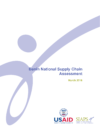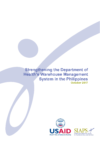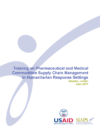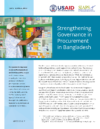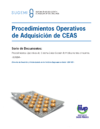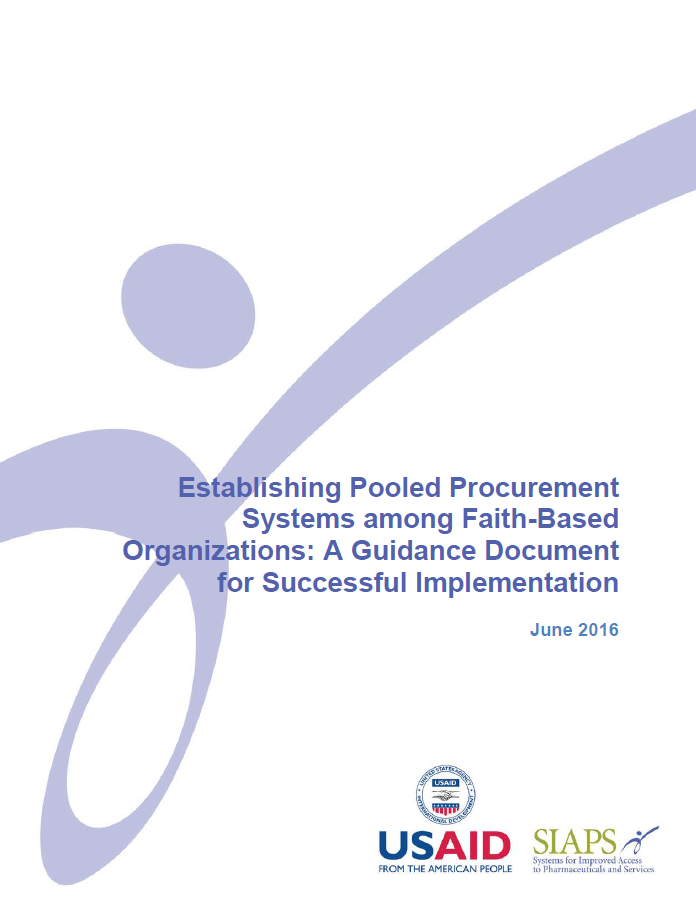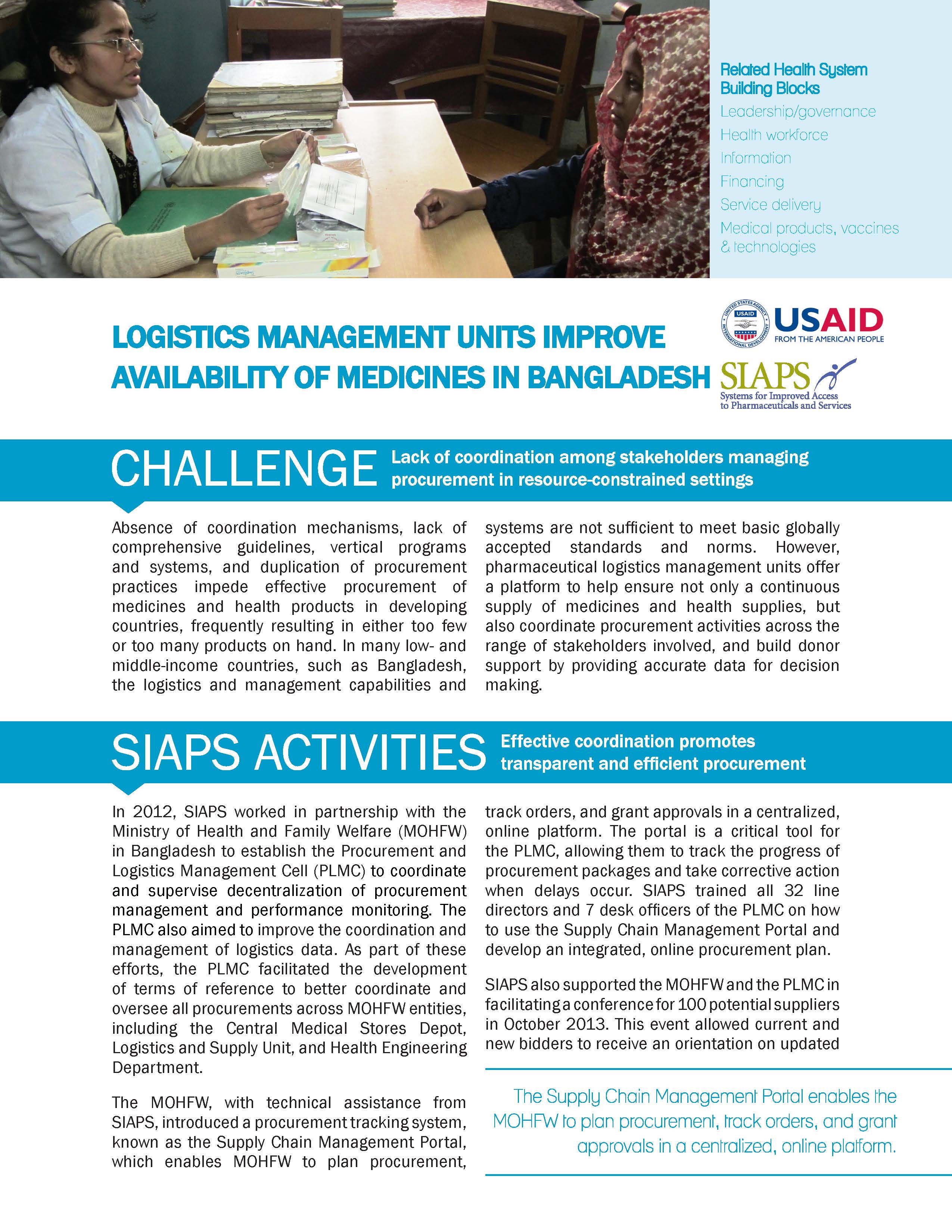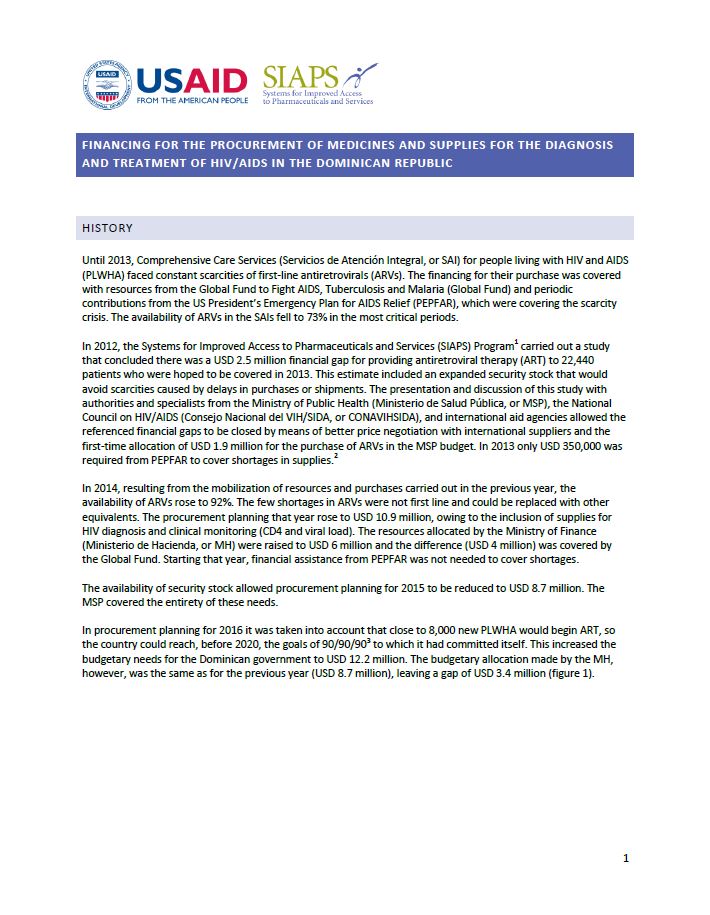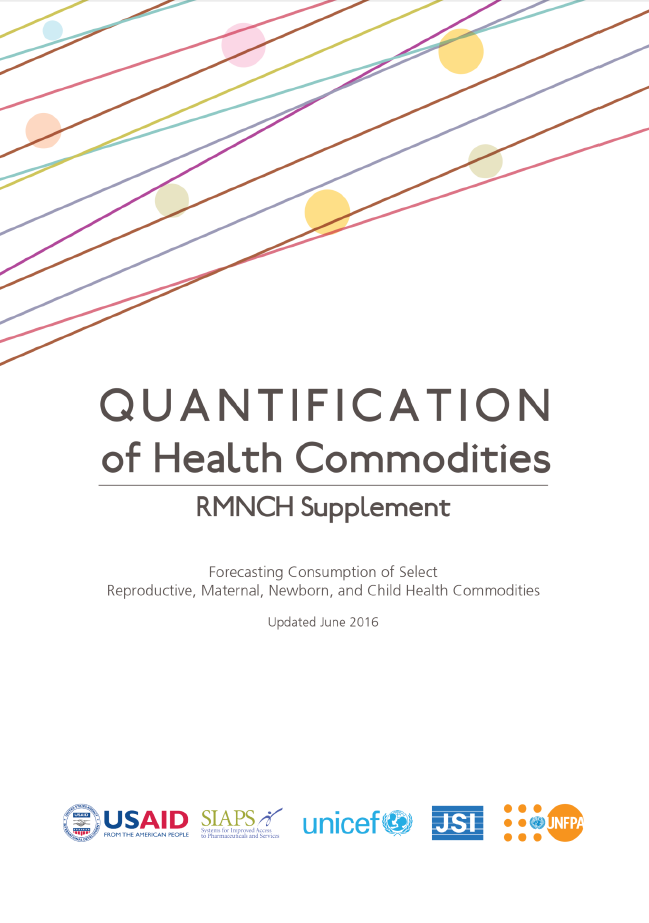In an effort to improve the health status of the Beninese population, a priority activity included in the 2015 convention between the US Government, represented by USAID, and the Benin Government, represented by the Ministry of Health (MOH), was to conduct a comprehensive assessment of the public health supply chain, focused on essential medicines that … Read more
A Gbaguidi, Benin, E Nfor, Human Resource Management, L Maxim, M Levenger, Pharmacovigilance, Procurement, Quantification, S Conesa, Supply chain management, Technical Report
This policy guidance document is divided into 13 different areas: Country policy development Registration Planning Financing Revised program guidelines, Essential Medicines List (EML), and reporting and recording forms Training of health workers and community partners (community health worker/relais) ACSM strategies Forecasting and quantification Procurement Distribution Health system strengthening Quality and safety Monitoring and evaluation
The goal of warehouse operations is to satisfy client needs and requirements while effectively utilizing space, equipment, and labor. Warehouse management refers to the monitoring, control, and optimization of warehouse and transportation systems. The objectives of this assessment were to review the existing warehouse management system, including space, equipment, tools, and processes, and identify key requirements … Read more
Assessment, C Agaceta, C Desano, E Nfor, I Linatoc, Philippines, Procurement, Supply chain management, Technical Brief, Technical Report, warehousing
Most NGOs and partners who work with OFDA face significant challenges in pharmaceutical procurement and supply chain management (SCM) as well as difficulties complying with OFDA policies, procedures, and funding/donation requirements. OFDA seeks to ensure excellence in its operations and programs and continues to push for significant changes to establish a humanitarian aid system that … Read more
Despite being one of the most densely populated countries in the world, the overall health in Bangladesh has steadily improved over the last 30 years. While the Government of Bangladesh’s efforts have resulted in impressive gains in public health, weaknesses in pharmaceutical management, including logistics and supplies, infrastructure, and the low performance of health care providers, … Read more
El SUGEMI, es el conjunto de procesos y recursos del sistema de salud orientados a garantizar la disponibilidad y uso racional de productos de calidad. Es un sistema que integrará las diferentes modalidades de suministro de medicamentos e insumos de salud, existentes en los Centros del primer nivel de atención (CPN) y Centros Especializados de … Read more
Faith-based organizations play a vital role in many developing countries in ensuring access to essential medicines and delivering health services to patients. This is particularly the case in rural areas, where public health facilities do not exist or are inadequate. However, many faith-based organizations face challenges with providing a continuous supply and reliable availability of … Read more
Absence of coordination mechanisms, lack of comprehensive guidelines, vertical programs and systems, and duplication of procurement practices impede effective procurement of medicines and health products in developing countries, frequently resulting in either too few or too many products on hand. In many low- and middle-income countries, such as Bangladesh, the logistics and management capabilities and systems are not sufficient to meet basic globally accepted standards … Read more
In 2012, the Systems for Improved Access to Pharmaceuticals and Services (SIAPS) Program carried out a study that concluded there was a USD 2.5 million financial gap for providing antiretroviral therapy (ART) to 22,440 patients who were hoped to be covered in 2013. This estimate included an expanded security stock that would avoid scarcities caused … Read more
This guide will assist program managers, service providers, and technical experts when conducting a quantification of commodity needs for the 13 reproductive, maternal, newborn, and child health commodities prioritized by the UN Commission on Life-Saving Commodities for Women and Children. These 13 commodities have diverse characteristics: some are new products that are in the process … Read more
